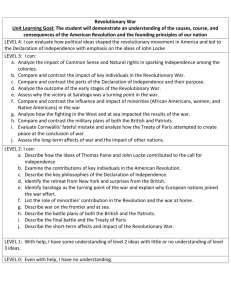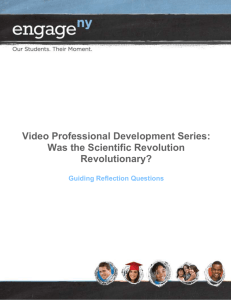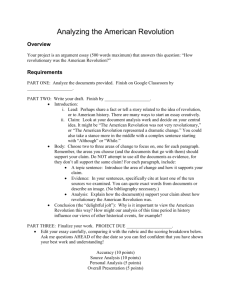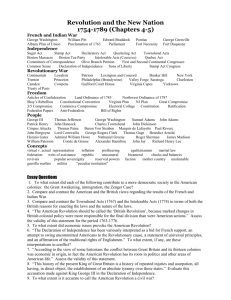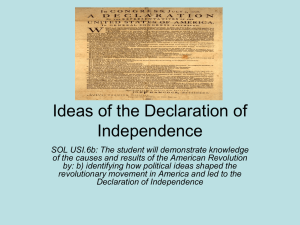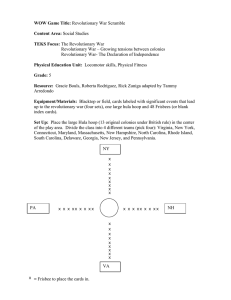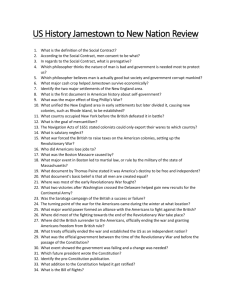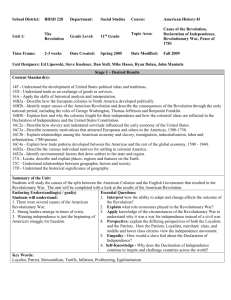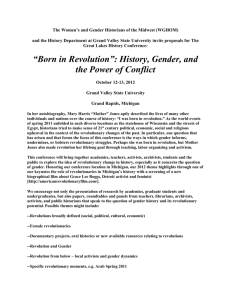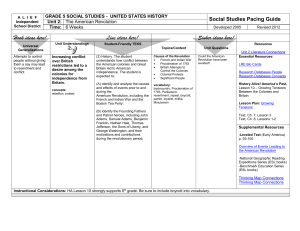AP U.S. 2014 Fall Exam Debrief: Extended Essay AP US History Fall
advertisement
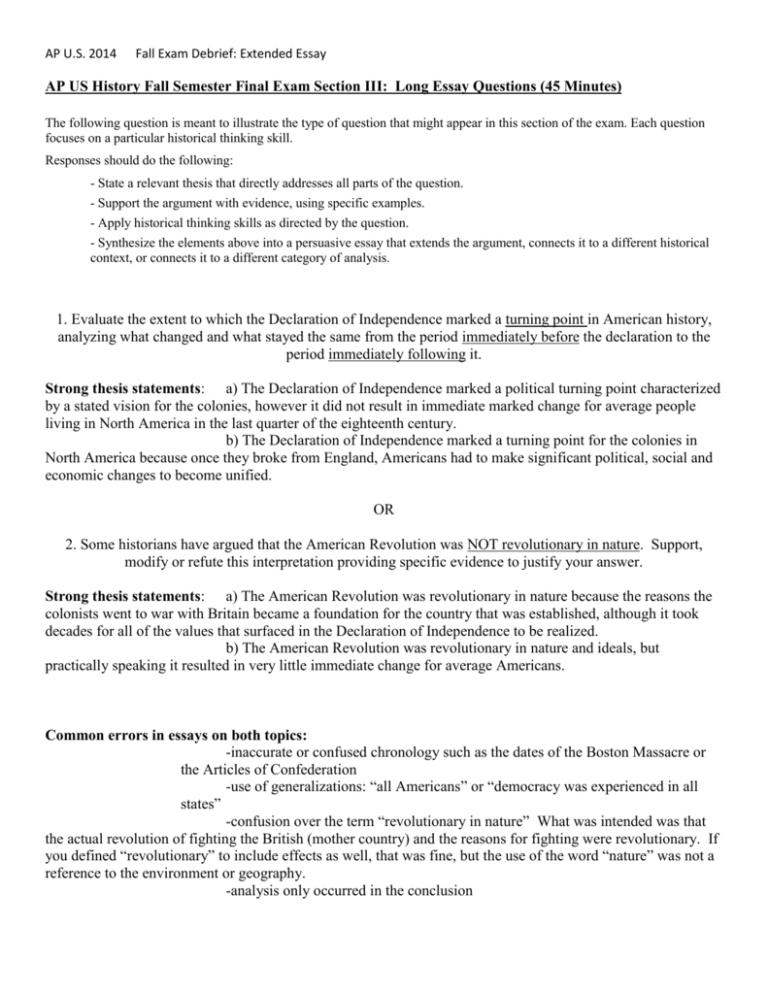
AP U.S. 2014 Fall Exam Debrief: Extended Essay AP US History Fall Semester Final Exam Section III: Long Essay Questions (45 Minutes) The following question is meant to illustrate the type of question that might appear in this section of the exam. Each question focuses on a particular historical thinking skill. Responses should do the following: - State a relevant thesis that directly addresses all parts of the question. - Support the argument with evidence, using specific examples. - Apply historical thinking skills as directed by the question. - Synthesize the elements above into a persuasive essay that extends the argument, connects it to a different historical context, or connects it to a different category of analysis. 1. Evaluate the extent to which the Declaration of Independence marked a turning point in American history, analyzing what changed and what stayed the same from the period immediately before the declaration to the period immediately following it. Strong thesis statements: a) The Declaration of Independence marked a political turning point characterized by a stated vision for the colonies, however it did not result in immediate marked change for average people living in North America in the last quarter of the eighteenth century. b) The Declaration of Independence marked a turning point for the colonies in North America because once they broke from England, Americans had to make significant political, social and economic changes to become unified. OR 2. Some historians have argued that the American Revolution was NOT revolutionary in nature. Support, modify or refute this interpretation providing specific evidence to justify your answer. Strong thesis statements: a) The American Revolution was revolutionary in nature because the reasons the colonists went to war with Britain became a foundation for the country that was established, although it took decades for all of the values that surfaced in the Declaration of Independence to be realized. b) The American Revolution was revolutionary in nature and ideals, but practically speaking it resulted in very little immediate change for average Americans. Common errors in essays on both topics: -inaccurate or confused chronology such as the dates of the Boston Massacre or the Articles of Confederation -use of generalizations: “all Americans” or “democracy was experienced in all states” -confusion over the term “revolutionary in nature” What was intended was that the actual revolution of fighting the British (mother country) and the reasons for fighting were revolutionary. If you defined “revolutionary” to include effects as well, that was fine, but the use of the word “nature” was not a reference to the environment or geography. -analysis only occurred in the conclusion
